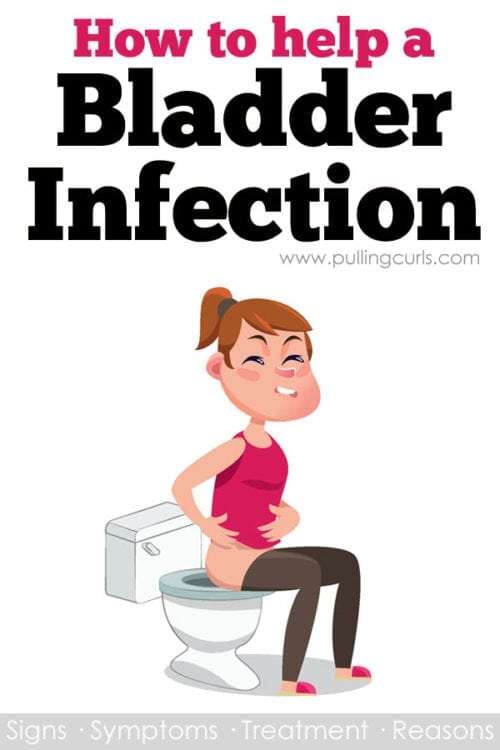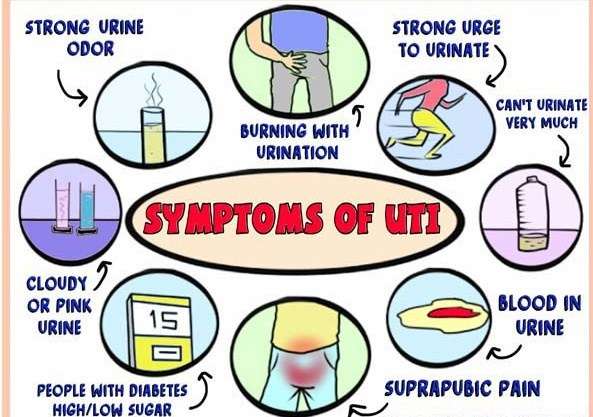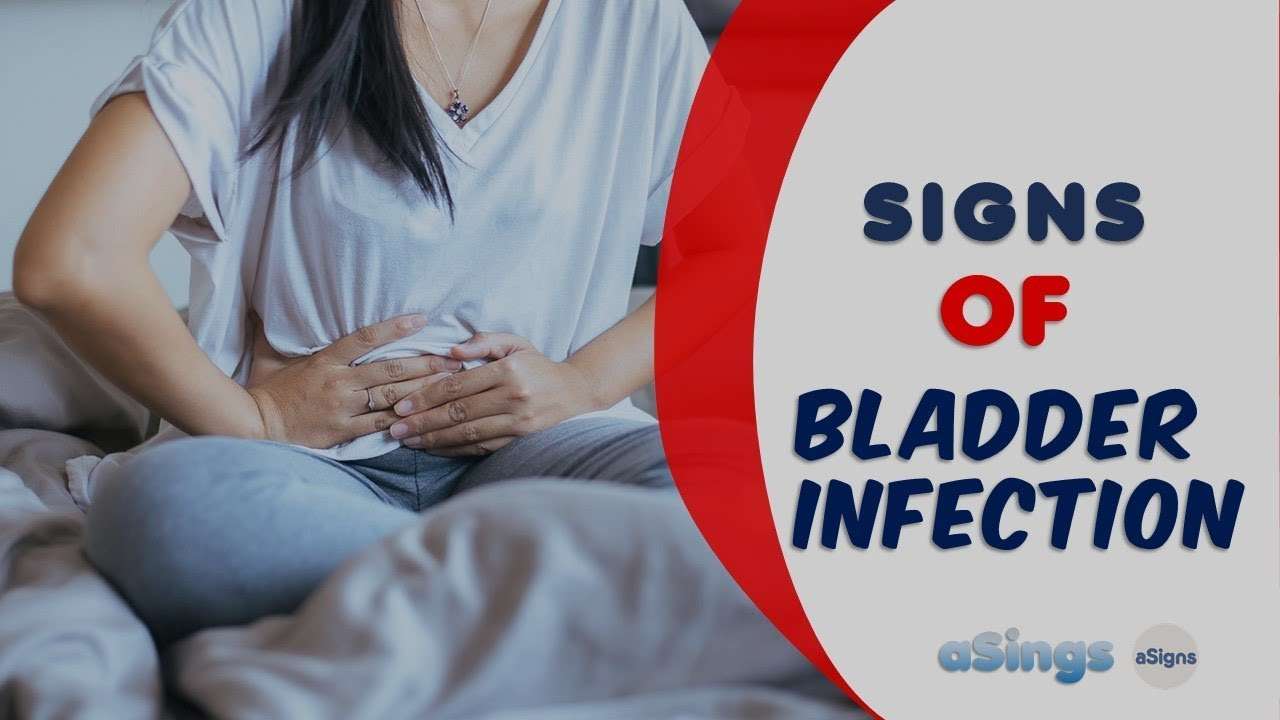How Is A Uti Diagnosed
To find out whether you have a UTI, your doctor or nurse will test a clean sample of your urine. This means you will first wipe your genital area with a special wipe. Then you will collect your urine in midstream in a cup. Your doctor or nurse may then test your urine for bacteria to see whether you have a UTI, which can take a few days.
If you have had a UTI before, your doctor may order more tests to rule out other problems. These tests may include:
- A cystogram. This is a special type of x-ray of your urinary tract. These x-rays can show any problems, including swelling or kidney stones.
- A cystoscopic exam. The cystoscope is a small tube the doctor puts into the urethra to see inside of the urethra and bladder for any problems.
Can Urinary Tract Infections Be Prevented Or Avoided
There are many lifestyle choices that can help you prevent UTIs. These are some of the things you can do to protect yourself from them:
- Drink plenty of water to flush out bacteria. For some people, drinking cranberry juice may also help prevent urinary tract infections. However, if youre taking warfarin, check with your doctor before using cranberry juice to prevent urinary tract infections. Your doctor may need to adjust your warfarin dose or you may need to have more frequent blood tests.
- Dont hold your urine. Urinate when you feel like you need to. Some children dont go to the bathroom often enough. If your child does this, teach him or her to go to the bathroom several times each day.
- Wipe from front to back after bowel movements. Teach your child to wipe correctly.
- Urinate after having sex to help wash away bacteria.
- Use enough lubrication during sex. Try using a small amount of lubricant before sex if youre a little dry.
- If you get urinary tract infections often, you may want to avoid using a diaphragm as a birth control method. Ask your doctor about other birth control choices.
- Avoid taking or giving your child bubble baths.
- Wear loose-fitting clothing , and dress your child in loose-fitting clothing.
- If you are uncircumcised, wash the foreskin regularly. If you have an uncircumcised boy, teach him how to wash his foreskin.
What Else Can You Do When Antibiotics Fail
When it comes to the best treatment for recurrent chronic UTIs there are two main camps.
Some physicians prefer a long-term antibiotic treatment protocol, frequently prescribing a variety of antibiotics over the course of several months .
Others advocate for the mindful use of antibiotics and focus on correcting underlying dysbiosis as the main reason for recurrent UTIs. In fact, we are still learning about the human microbiome and the effect bacteria have on our health and it seems less and less probable that antibiotics alone could solve chronic issues.
Moreover, antibiotics were developed when we thought that a healthy bladder is sterile which we now know is far from the truth.
What is the best approach to cure a chronic UTI? Here is a selection of posts that can help you to get up to speed:
Read Also: Recurrent Bladder Infections And Cancer
What Is A Urinary Tract Infection
A urinary tract infection refers to a condition that affects any portion of a persons urinary tract, such as the kidneys, urethra, or bladder. It typically affects women more often than men. This is because womens urethra is shorter than mens, making it easier for bacteria to travel up to the tract. Learn more about chronic / recurrent UTIs here.
Whats The Difference Between A Urinary Tract Infection And Bladder Infection

A urinary tract infection is a more general type of infection. There are many parts of your urinary tract. A UTI is a term for an infection that takes place throughout the urinary tract. A bladder infection, also called cystitis, is a specific infection. In this infection, bacteria makes its way into the bladder and causes inflammation.
Not all urinary tract infections become bladder infections. Preventing the spread of the infection is one of the most important reasons to treat a UTI quickly when you have symptoms. The infection can spread not only to the bladder, but also into your kidneys, which is a more complicated type of infection than a UTI.
Read Also: Botox Injection For Bladder Incontinence
How Can I Avoid A Bladder Infection
Its not always easy to avoid contracting a bladder infection, but there are some precautions you can take to reduce your risk.
These precautions include:
- Not waiting long periods to empty your bladder when you feel the urge
- Making sure you empty your bladder fully
- Avoiding the use of perfumed products around your genitals
- Emptying your bladder after sex
- Wiping from the front to the back after going to the toilet
- Avoiding using a contraceptive diaphragm or spermicidal condoms or lubricant
- Wearing cotton instead of synthetic underwear
What Is The Urinary Tract
The urinary tract makes and stores urine, one of the body’s liquid waste products. The urinary tract includes the following parts:
- Kidneys: These small organs are located on back of your body, just above the hips. They are the filters of your body removing waste and water from your blood. This waste becomes urine.
- Ureters: The ureters are thin tubes that carry urine from the kidneys to your bladder.
- Bladder: A sac-like container, the bladder stores your urine before it leaves the body.
- Urethra: This tube carries the urine from your bladder to the outside of the body.
Also Check: How Do Bladder Infections Happen
How Do Utis Affect Pregnancy
Changes in hormone levels during pregnancy raise your risk for UTIs. UTIs during pregnancy are more likely to spread to the kidneys.
If you’re pregnant and have symptoms of a UTI, see your doctor or nurse right away. Your doctor will give you an antibiotic that is safe to take during pregnancy.
If left untreated, UTIs could lead to kidney infections and problems during pregnancy, including:
- Premature birth
- Low birth weight
Im Pregnant How Will A Uti Affect My Baby
If you have a UTI and it isnt treated, it may lead to a kidney infection. Kidney infections may cause early labor. Fortunately, asymptomatic bacteriuria and bladder infections are usually found and treated before the kidneys become infected. If your doctor treats a urinary tract infection early and properly, it wont hurt your baby.
Also Check: Will Overactive Bladder Go Away
Don’t Sabotage Your Recovery
Don’t give in and reach for the foods that are hurting you. I really sabotaged myself for a while because I would not give up that one cup of coffee in the morning. Once I got past that, I started to get better. Don’t undermine your recovery with that one glass of wine or cup of coffee, the way I did. Just stop. If all goes well, this will be a temporary situation. You can go back to enjoying those things later, but for now, you have to get this situation under control.
Instead of your regular acidic indulgences, milk or vanilla ice cream can be pleasant and very soothing. Make sure you get a brand of ice cream that does not contain a lot of chemicals.
A Uti That The Test Isn’t Detecting
One possibility is that you really do have a UTI that’s flying under the radar. One 2017 study in Clinical Microbiology and Infectionfound that one in five women with UTI symptoms had negative results on the standard tests, but almost all these women had UTIs according to the more sensitive quantitative polymerase chain reaction test.
“Standard urine cultures test for specific types of bacteria, but many women will have infections that are not able to be grown in these cultures,” Rice says. “Another possible reason for a false negative test is that often, the test requires a certain number of bacteria to be grown in culture. For instance, if someone has just urinated prior to leaving a sample and there is not a sufficient quantity of urine built up in the next voided sample, it is possible for a standard urine culture to report negative findings.” A false negative can also occur if you’ve already taken antibiotics, so make sure not to do that.
If you think you might have a UTI that’s not being detected, your doctor may be able to do a PCR laboratory test, Rice says. Dr. Jennifer Linehan, M.D, urologist and associate professor of urology and urologic oncology at the John Wayne Cancer Institute at Providence Saint Johnâs Health Center in Santa Monica, tells Bustle that another type of test called Next-Generation Sequencing is even more accurate.
Also Check: Causes Of Repeated Bladder Infections
Uti Diagnosis And Treatment
Think you may have a UTI? The standard way to diagnose one is a urine culture. Most doctors will ask for a clean catch sample, where you pee into a cup midstream after carefully wiping your outer vaginal area.
If you are diagnosed with a UTI, your doctor will likely provide a pregnancy-safe antibiotic for seven to 14 days to get rid of all of the bacteria. Be sure to take the recommended full course, even if you start to feel better midway through treatment, and drink plenty of water.
If the infection has reached your kidneys, your practitioner may suggest staying in the hospital, where you can receive IV antibiotics.
Keep in mind: Some women have a UTI with no symptoms at all. Because an untreated infection can lead to complications including kidney infection and, potentially, an increased risk of fetal growth restriction, preeclampsia and preterm birth notify your provider immediately if you have any UTI-like symptoms.
Likewise, the urine tests at your regular prenatal visits are really important.
I Might Have A Uti What Should I Do Now

If you are experiencing the symptoms of a urinary tract infection, it is important to receive prompt medical care, said Dr. Shalev. These infections do not go away on their own, and homeopathic remedies rarely are enough. You will need proper medical treatment to ensure the infection doesnt travel up the system to reach the kidneys and become a full-blown kidney infection. Go to your nearest ER or come to Advance ER for fast, top quality care.
Don’t Miss: How To Relieve Bladder Spasms With Catheter
Causes Of Urinary Tract Infections
UTIs are usually caused by bacteria from poo entering the urinary tract.
The bacteria enter through the tube that carries pee out of the body .
Women have a shorter urethra than men. This means bacteria are more likely to reach the bladder or kidneys and cause an infection.
Things that increase the risk of bacteria getting into the bladder include:
- having sex
-
do not use scented soap
-
do not hold your pee in if you feel the urge to go
-
do not rush when going for a pee try to fully empty your bladder
-
do not wear tight, synthetic underwear, such as nylon
-
do not drink lots of alcoholic drinks, as they may irritate your bladder
-
do not have lots of sugary food or drinks, as they may encourage bacteria to grow
-
do not use condoms or diaphragms with spermicidal lube on them try non-spermicidal lube or a different type of contraception
Healing An Irritated Bladder
The healthy bladder is coated with a mucosal tissue called the glycosaminoglycan layer, generally referred to as the GAG layer. This layer protects the bladder from direct contact with urine. The GAG layer can become damaged by bacteria or other trauma, such as pelvic surgery, repeated infections, or a complicated pregnancy. I went on a regimen designed to heal the GAG layer.
First of all, go on a low-acid diet. If you look up an Interstitial Cystitis diet or IC diet, you will get varying advice on this. Different people seem to have different triggers. The ones I mention in the “common food triggers” section, should be avoided. Most of them definitely affected me.
One book I read said, “If you wouldn’t put it on an open wound, don’t eat it,” and this resonated with me. So things like hot spices, lemon and vinegar would be off limits. If I ate acidic food, I could feel my bladder burning within 10 minutes.
This list is a good starting point. Pay attention to you body. If you feel worse, ask yourself, “What did I eat?”
Don’t Miss: Men’s Overactive Bladder Treatment
Seattle Children’s Urgent Care Locations
If your childs illness or injury is life-threatening, call 911.
Treatment for a Bladder Infection
Prevention of Bladder Infections in Girls
Seeking Treatment For A Bladder Infection
If your bladder infection is mild and hasnt spread to your upper urinary tract, you may be able to wait out the infection at home. During this time, you should avoid sex and drink plenty of water you can also self-medicate with over-the-counter painkillers.
For more information on treatment visit our cystitis clinic.
References
Recommended Reading: How To Fix Bladder Leakage After Pregnancy
Wipe From Front To Back
According to the National Institute of Diabetes and Digestive and Kidney Diseases , UTIs can develop when bacteria from the rectum or feces gain access to the urethra. This small channel allows urine to flow out of the body.
Once bacteria are in the urethra, they can travel up into other urinary tract organs, where they can lead to infections.
After urinating, wipe in a way that prevents bacteria from coming into contact with the genitals. Use separate pieces of toilet paper to wipe the genitals and anus.
What Are The Symptoms Of A Urine Infection
- Infection in the bladder usually causes pain when you pass urine, and you pass urine more frequently. You may also have pain in your lower tummy . Your urine may become cloudy, bloody or smelly. You may have a high temperature .
- Infection in the kidneys may cause pain in a loin and a high temperature . It may cause you to feel sick or be sick . You may feel generally unwell.
In some elderly men, the only symptoms may be a recent onset of confusion or just feeling generally unwell, even without any actual urinary symptoms.
Also Check: New Treatments For Neurogenic Bladder
What Is A Urinary Tract Infection In Children
A UTI is when bacteria gets into your urine and travels up to your bladder. As many as 8 in 100 of girls and 2 in 100 of boys will get UTIs. Young children have a greater risk of kidney damage linked to UTI than older children or adults.
How Does the Urinary Tract Work?
The urinary tract is the organs in your body that make, store, and get rid of urine, one of the waste products of your body. Urine is made in the kidneys and travels down to the bladder through the ureters . The kidneys make about 1½ to 2 quarts of urine a day in an adult, and less in children, depending on their age. In children, the bladder can hold 1 to 1½ ounces of urine for each year of age. For example, a 4-year-old childs bladder can hold 4 to 6 ouncesa little less than a cup.
The bladder stores the urine until it is emptied through the urethra, a tube that links the bladder to the skin, when you urinate. The urethra opens at the end of the penis in boys and in front of the vagina in girls.
The kidneys also balance the levels of many chemicals in the body and check the blood’s acidity. Certain hormones are also made in the kidneys. These hormones help control blood pressure, boost red blood cell production and help make strong bones.
Normal urine has no bacteria in it, and the one-way flow helps prevent infections. Still, bacteria may get into the urine through the urethra and travel up into the bladder.
Check If It’s A Urinary Tract Infection

Symptoms of a UTI may include:
- pain or a burning sensation when peeing
- needing to pee more often than usual during the night
- pee that looks cloudy
- needing to pee suddenly or more urgently than usual
- needing to pee more often than usual
- lower tummy pain or pain in your back, just under the ribs
- a high temperature, or feeling hot and shivery
- a very low temperature below 36C
You May Like: How To Take Care Of A Bladder Infection At Home